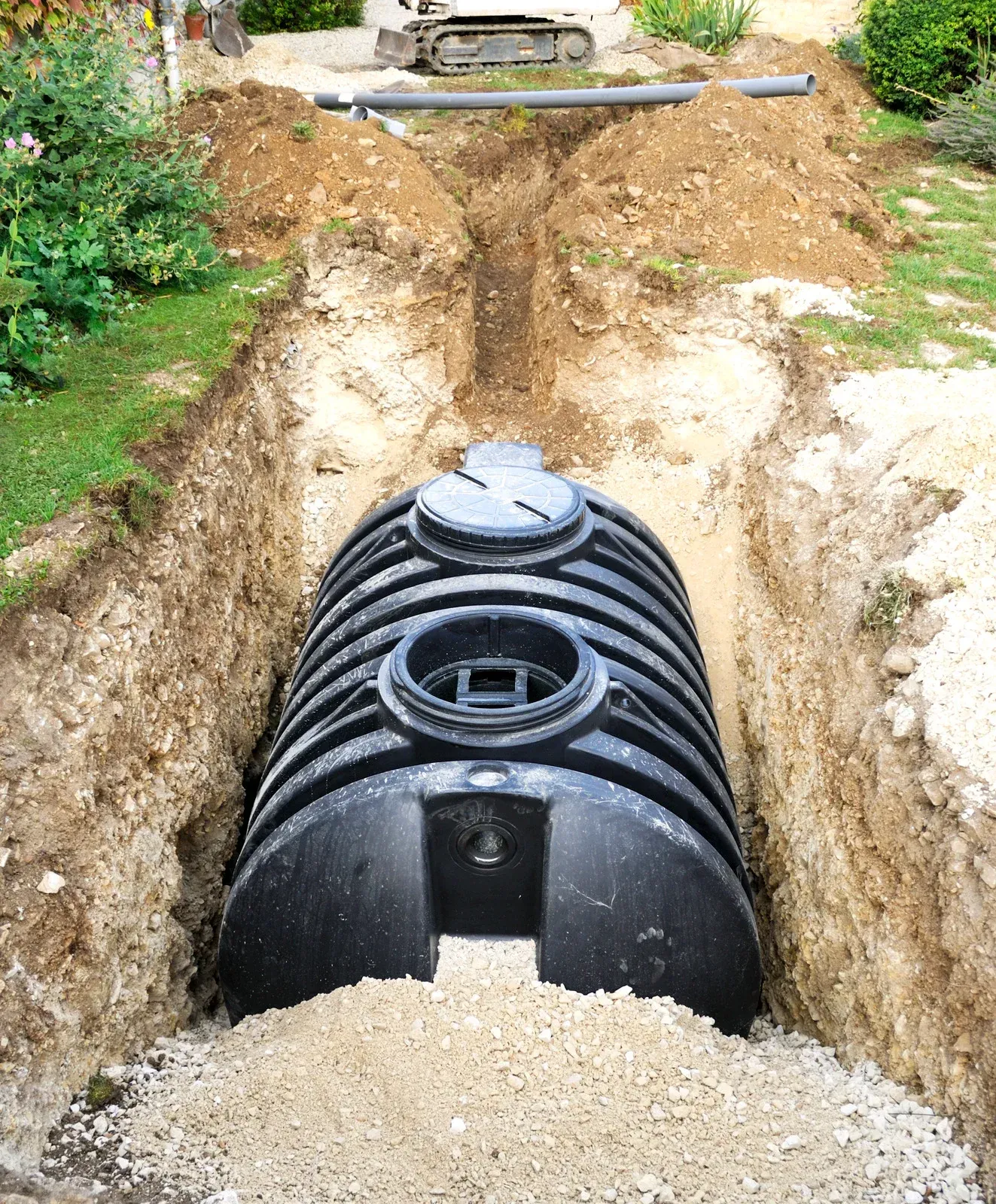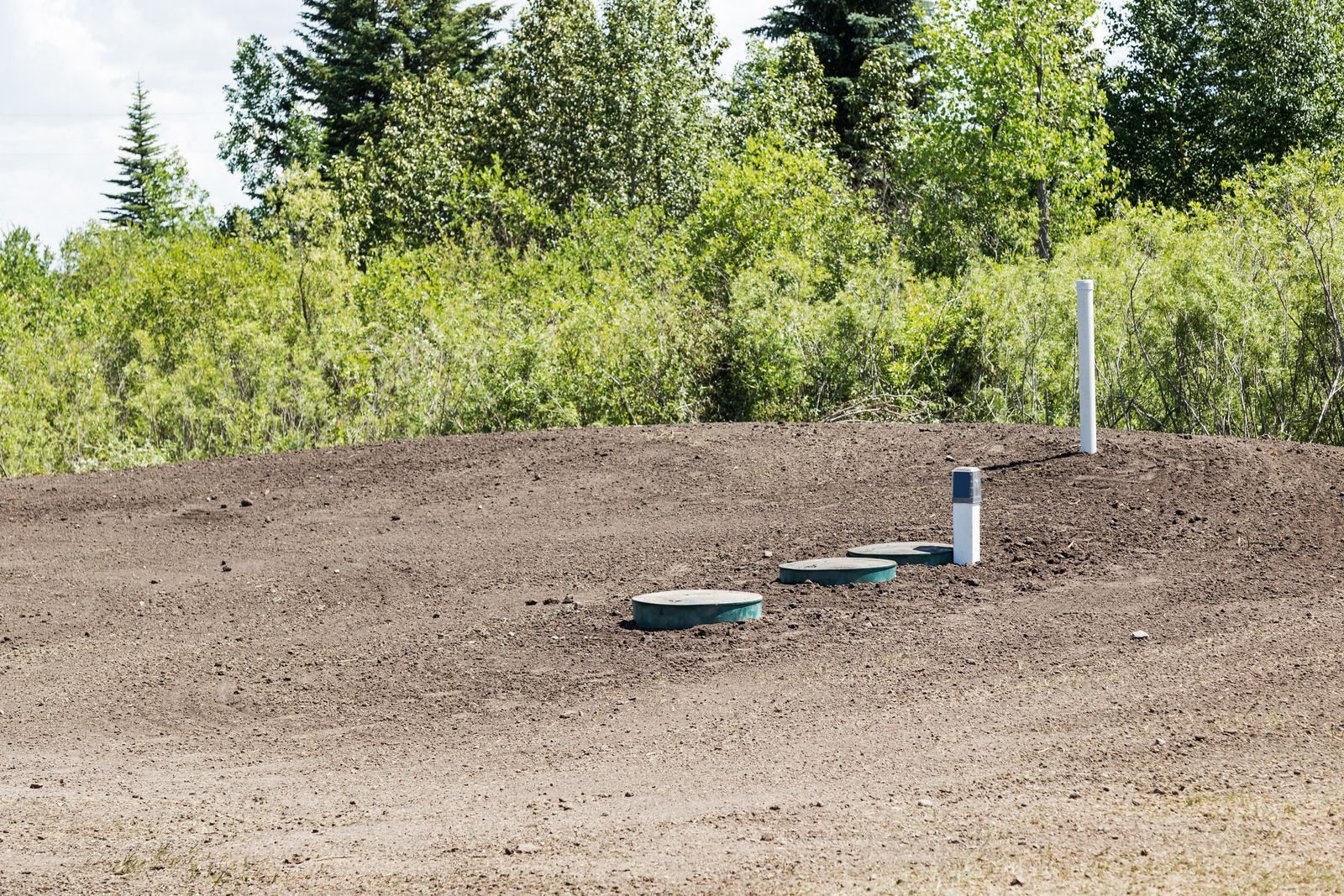Septic System Installation Services in Truckee, California


Built for Endurance, Engineered for Precision
At Hauff Excavation Inc., we understand how important it is for you to have a reliable wastewater management system—especially if you're building in a rural or off-grid area. When you're not connected to a municipal sewer system, the right installation makes all the difference in keeping your property safe, hygienic, and fully compliant. In Truckee, California, and nearby communities like Tahoe City, Kings Beach, Incline Village, and Donner Lake, terrain and infrastructure limitations make wastewater systems a critical part of every project.
Installing one isn’t just about putting pipes in the ground. It starts with proper soil evaluation, understanding local codes, designing a system that fits your property, and using the right equipment to get it done right. We take pride in helping you navigate every challenge—from rocky terrain to changing water tables—so your system performs reliably for years to come.
Whether you're building from the ground up or upgrading an older setup, we tailor each solution to your land’s needs. Our team walks with you from consultation through to inspection, delivering work that’s built to last and meets every environmental and safety standard. You get peace of mind knowing the job was done with care.
Professional Septic System Installation Services
Site Evaluation and Soil Testing
Before installation, the site is carefully assessed to identify the ideal location for the septic tank and leach field. Soil percolation tests determine how well the ground can absorb wastewater. These evaluations ensure proper system performance, regulatory compliance, and a design that matches the property's layout, soil type, and environmental conditions.
System Design and Permitting
A detailed system design is created based on property size, slope, and wastewater needs. All permitting is handled from start to finish, ensuring adherence to local codes and health department requirements. Custom plans are reviewed and submitted to authorities before installation begins, ensuring a smooth approval process and legally compliant installation.
Excavation and Tank Placement
Specialized excavation equipment digs trenches for the septic tank and drain field. The tank is then securely placed and backfilled according to exact design specifications. All excavation work is conducted with care to minimize land disturbance while ensuring stability, proper alignment, and readiness for long-term underground functionality.
Drain Field Installation
The drain field is built using materials suited to the site's specific soil conditions. Whether gravel, chambers, or drip systems are used, the design ensures that wastewater filters safely into the earth. Proper sizing and layout of the field help maintain consistent drainage and protect surrounding groundwater from contamination.
Pump System Integration
Pump systems are installed to move wastewater effectively for properties with uneven terrain. These systems include high-efficiency effluent pumps, control panels, and alarms that ensure reliable operation. These systems prevent backup and maintain proper flow when gravity-fed options aren’t feasible due to elevation differences or landscape challenges.
Final Inspection and Commissioning
The system is thoroughly inspected to meet all health and safety standards upon completion. Performance tests verify operational readiness, and the system is activated once approved. Clients receive complete documentation and guidance for future care, ensuring continued performance and compliance with all county and environmental regulations.
Key Benefits of Septic System Installation
Reliable Wastewater Disposal
Septic systems offer consistent and effective wastewater treatment for properties not serviced by municipal sewers. Proper installation ensures reliable disposal, maintaining sanitation standards and property functionality without interruption. This dependability is critical for long-term residential, commercial, or seasonal property use in remote or rural areas.
Environmental Protection
Modern septic systems are engineered to filter and safely disperse wastewater into the ground. This prevents untreated waste from contaminating groundwater or nearby waterways. An effective system reduces environmental risks and helps sustain the integrity of local ecosystems, especially in regions with sensitive natural resources or protected zones.
Property Value Enhancement
A well-installed septic system adds measurable value by meeting local sanitation codes and reducing future infrastructure costs. Prospective buyers see added appeal in self-contained wastewater systems that support full property functionality, particularly in areas where access to municipal sewer lines is limited or unavailable.
Long-Term Cost Efficiency
Septic systems can result in significant savings over time. Once installed, property owners eliminate recurring municipal sewer fees. With correct usage and routine maintenance, repair costs remain low and lifespan extends for decades, offering a high return on initial investment and reduced dependency on external utilities.
Customized to Site Conditions
Each septic system is designed to align with the site’s physical characteristics, such as soil type, slope, and groundwater depth. This tailored approach ensures the unit operates efficiently under specific environmental conditions, reducing the likelihood of failure or overflow while promoting optimal wastewater absorption.
Independence from Municipal Utilities
Septic systems allow rural and off-grid properties to operate independently of public sewer networks. This is especially beneficial for remote homes, cabins, and commercial buildings, offering full utility functionality without relying on external infrastructure or incurring access costs from distant utility providers.
Built to Last: Trust in Quality Septic Installation
At Hauff Excavation Inc., our expert team provides comprehensive septic system installation services built for reliability, efficiency, and code compliance. From initial soil evaluation to final system commissioning, we handle every step with precision and professionalism. Serving Truckee, California, Tahoe City, Kings Beach, Incline Village, and Donner Lake, we custom-design each system to match the property’s unique layout, wastewater volume, and environmental conditions, ensuring it operates effectively for years to come.
We manage the permitting process, perform precise excavation, and install tanks, drain fields, and pump systems using industry-proven methods.

Every component is selected and installed to meet both functional requirements and regulatory standards. Once installation is complete, we conduct thorough testing and inspections to ensure optimal performance.
Whether supporting new construction, property upgrades, or remote mountain sites, our systems are designed to protect the environment and support long-term property value. With us, property owners across the Truckee and Sierra Nevada region can expect reliable septic solutions backed by experience, attention to detail, and a strong commitment to quality workmanship from start to finish.
Frequently Asked Questions
How long does a septic system last?
A properly installed and maintained septic system can last 25 to 40 years. Lifespan depends on tank material, soil conditions, usage habits, and regular maintenance, including timely pumping and inspection to prevent buildup or system failure.
How often should a septic tank be pumped?
Most septic tanks should be pumped every 3 to 5 years. The exact interval depends on tank size, household occupancy, and water usage. Regular pumping prevents solids from clogging the drain field and keeps the system functioning efficiently.
What are the signs of septic system failure?
Common signs include slow drains, sewage odors, standing water near the drain field, or gurgling sounds in pipes. These indicators suggest blockages, overloading, or component malfunction and require prompt professional inspection to avoid further damage.
Can a septic system be installed on any property?
Septic systems require suitable soil conditions and adequate space for a tank and a drain field. Properties must pass a percolation test and meet local environmental and zoning regulations before installation is approved and permitted.
What types of septic systems are available?
Types include conventional gravity systems, mound systems, pressure distribution, aerobic treatment units, and drip irrigation systems. The best choice depends on property size, soil absorption rate, slope, and groundwater levels determined during site evaluation.
Is a permit required to install a septic system?
Yes, permits are required for installation to ensure compliance with health and environmental regulations. A certified contractor typically handles design submission, soil testing, and permitting, which must be approved before construction begins.
How is the right system design determined?
Design is based on factors like soil permeability, water table depth, property size, and anticipated wastewater volume. These details are evaluated during site assessments to ensure the chosen system meets both functional needs and regulatory standards.
What our customers have to say...
Testimonials
Ricky and his crew exceeded all my expectations! I only had the vaguest idea of what I wanted and the final product was even better than I could have ever dreamed of.
Harry S.
